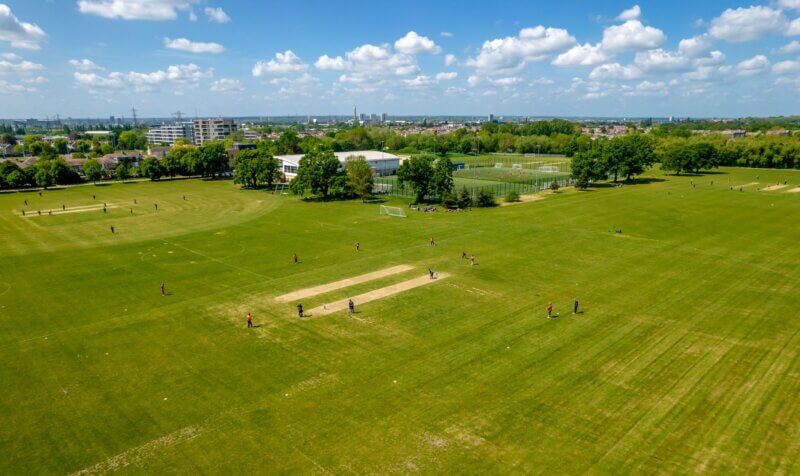


To support #Groundsweek 2023 and to highlight the importance of grounds staff we spoke to LPFF Chief Executive Alex Welsh about the role they play in the charity’s work to protect places to play sport forever.
How important are Ground Staff to the Foundation?
Our grounds staff are the life blood of the charity in that they play a crucial role in ensuring that our schools and clubs feel that our facilities provide a home from home for them where they can widen, increase and sustain participation. Often our ground staff are the first people that our users see and therefore play an important part in developing strong and lasting customer relations. If we are unable to provide place to play sport that is welcoming and attractive they won’t come back. Given that the Foundation’s policy is based on intensity of use over a 28 week football season and a 20 week cricket season it means that they have to be highly skilled in preparing and repairing playing surfaces under pressure so that they provide our schools and clubs the best possible playing experience.
What are the issues facing the grounds work sector and what can we do to address that?
We are very proud of the loyalty of our staff but one of the issues emerging from this is that we do have an ageing work force and that is why succession planning is a vital part of our annual staffing audit. Of the current team of Head Groundsmen 75% came through the Foundation as assistants and have been promoted into senior roles. They have bought into the culture of the charity and are fully committed to our dual mission of providing a place to play sport forever and creating more active communities.
Our wider ambition is to recruit women into ground staff roles because the industry would greatly benefit from more female representation.
What qualities make a good grounds person?
In addition to acquiring the specialist knowledge and skills they need to be good organisers and planners who can work their schedules around the fixtures and prevailing weather conditions. As they are our “front of house” people they need to possess good people skills and endless tact in the full understanding that a customer’s first impressions is a lasting one. We pride ourselves on having outstanding relationships with our users and our grounds staff play a huge role in this. Finally, a strong work ethic and the ability to be flexible when things do not go to plan are also essential.
How has the grounds work sector changed during your time with the LPFF?
As 85% of sports grounds are owned by local authorities the shift towards outsourcing grounds work services in the 1990’s (via Compulsory Competitive Tendering) has had a profound impact on the sector. The days when you would see a team of grounds staff dedicated to one Council site were over and were replaced by external contractors who had little loyalty to the fields that they were maintaining. As well as disincentivising the workforce with fewer people choosing grounds work as a career, this also resulted in a general deterioration in the quality of sports pitches especially for fine turf surfaces like cricket and bowling greens.
How can we attract more people into the Grounds work sector?
Returning to the days where grounds staff are assigned a specific site to look after will help to revive that pride in a job well done and make the prospect of a career in grounds work more attractive.
Why are campaigns such as #GroundsWeek important?
They are very important in that they draw attention to a much unheralded profession. We quite rightly laud the players and the coaches when watching our weekly fix of professional sport on TV but we very rarely reflect on the brilliant job that the grounds team did in preparing a wonderful playing surface. This campaign helps to address that oversight.